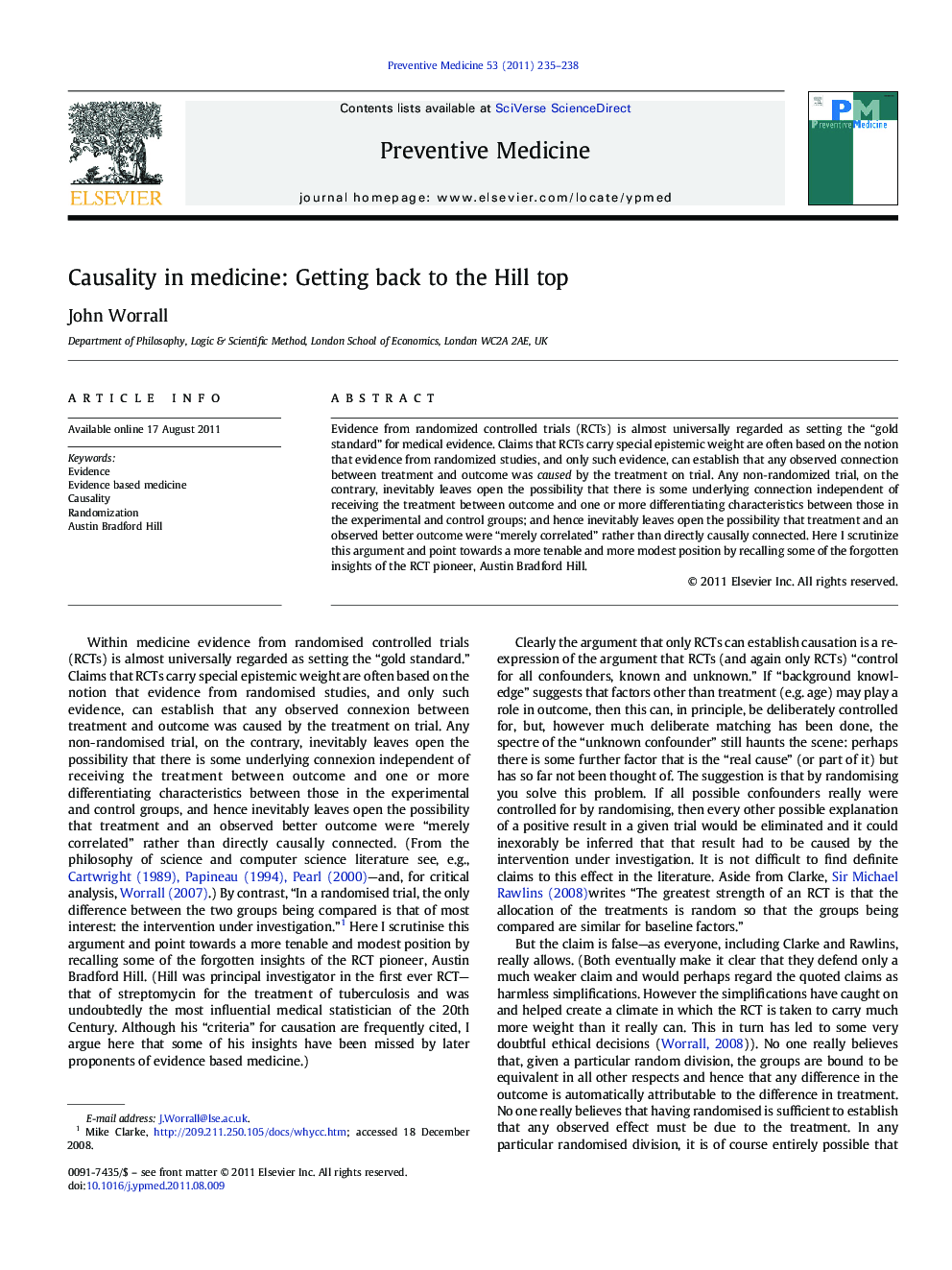| Article ID | Journal | Published Year | Pages | File Type |
|---|---|---|---|---|
| 6048116 | Preventive Medicine | 2011 | 4 Pages |
Evidence from randomized controlled trials (RCTs) is almost universally regarded as setting the “gold standard” for medical evidence. Claims that RCTs carry special epistemic weight are often based on the notion that evidence from randomized studies, and only such evidence, can establish that any observed connection between treatment and outcome was caused by the treatment on trial. Any nonârandomized trial, on the contrary, inevitably leaves open the possibility that there is some underlying connection independent of receiving the treatment between outcome and one or more differentiating characteristics between those in the experimental and control groups; and hence inevitably leaves open the possibility that treatment and an observed better outcome were “merely correlated” rather than directly causally connected. Here I scrutinize this argument and point towards a more tenable and more modest position by recalling some of the forgotten insights of the RCT pioneer, Austin Bradford Hill.
⺠The claim that RCTs carry special epistemic weight is analysed. ⺠Exaggerated claims on behalf of RCTs are identified. ⺠A more modest and more defensible position is sketched. ⺠This position is based on insights articulated long ago by Austin Bradford Hill.
